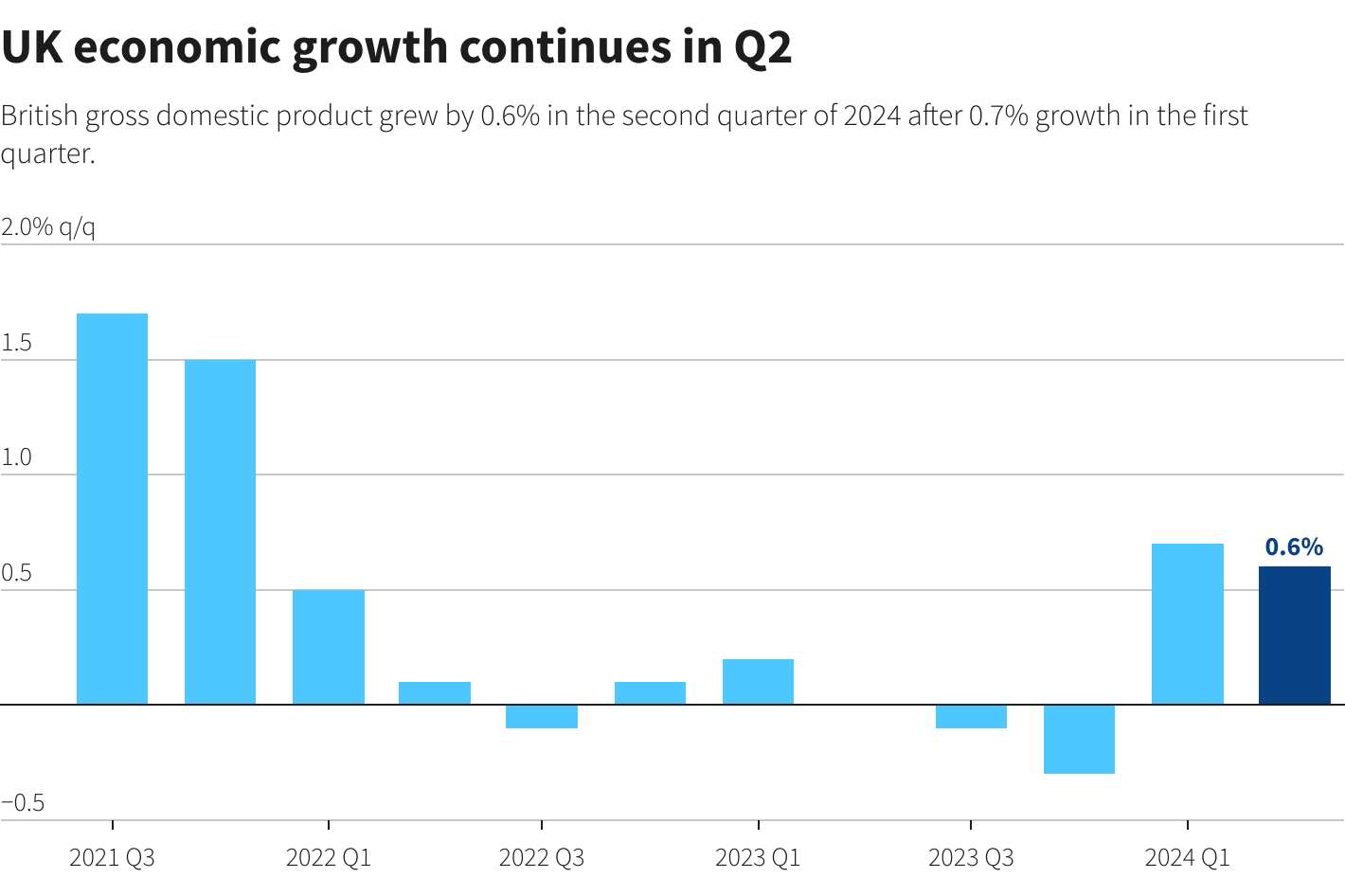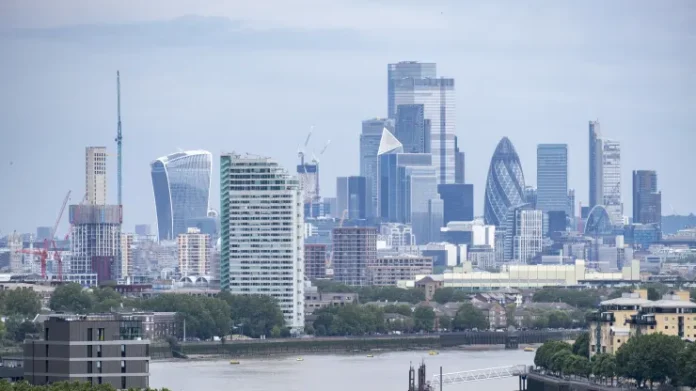Britain’s economy grew 0.6 per cent in the second quarter of 2024, in line with economists’ expectations, according to Reuters.
The growth was based on a quick 0.7% recovery in the first quarter of the year following a shallow recession in the second half of 2023, official data showed.
The level of UK gross domestic product remained unchanged in June alone, also in line with economists’ forecasts. Suren Thiru, economics director at the Institute of Chartered Accountants in England and Wales, stated:
These figures confirm that the UK’s recovery from recession picked up steam in the second quarter, despite strike action and wet weather causing activity to flatline in June.
However, he also warned that he expected growth to slow in the second half of 2024 due to interest rates. They remain near 16-year highs despite the Bank of England’s (BoE) cut this month, as well as continued supply constraints and slower wage growth.
Earlier this month, the BoE raised its annual growth forecast for 2024 to 1.25 per cent from 0.5 per cent on the back of a stronger-than-expected year start and expectations for quarterly growth of 0.7 per cent in the three months to June.
The UK economy has grown slowly since the outbreak of the COVID-19 pandemic, expanding by just 2.3% between the fourth quarter of 2019 and the second quarter of 2024. Only Germany, which has also been hit hard by soaring energy prices since the start of the war in Ukraine, performed markedly worse among the world’s major advanced economies.
Economic ambitions
UK Prime Minister Keir Starmer has stated that he wanted the economy to achieve annual growth of 2.5 per cent while campaigning ahead of the 4 July election. Finance Minister Rachel Reeves has set a more formal target: the UK must achieve the fastest growth in gross domestic product (GDP) per capita among G7 countries for two consecutive years.

Data on Thursday showed output per capita in the second quarter of 2024 was 0.1 per cent lower than a year earlier and 0.8 per cent lower than before the pandemic. According to Reeves, the latest figures demonstrated the difficulties faced by the new government. She also reiterated her stance that she would need to make tough decisions to improve economic fundamentals.
Growth in productivity output per hour worked has slowed in most advanced economies since the late 2000s, limiting the rise in living standards. Moreover, the UK’s long-standing domestic obstacles caused by low business investment have been exacerbated by the public vote in 2016 to leave the European Union (Brexit).
